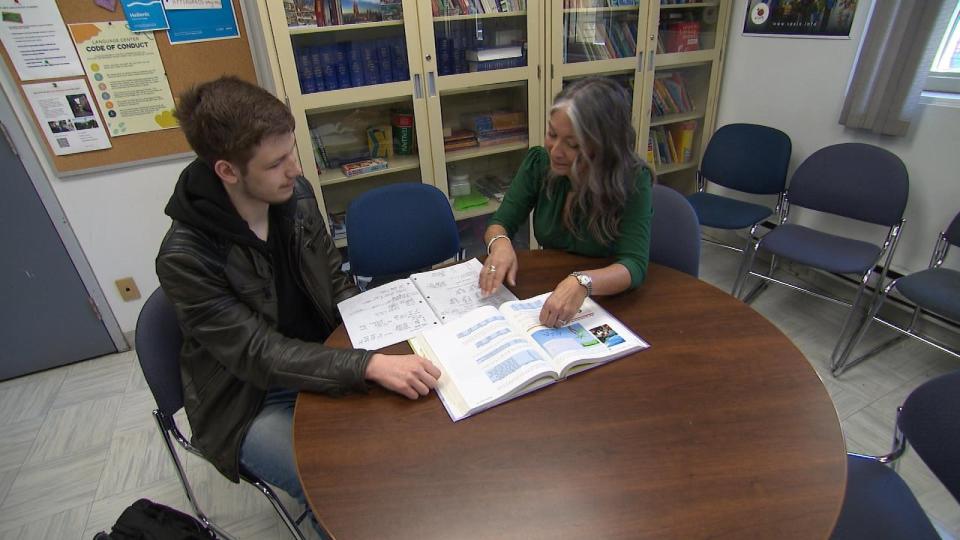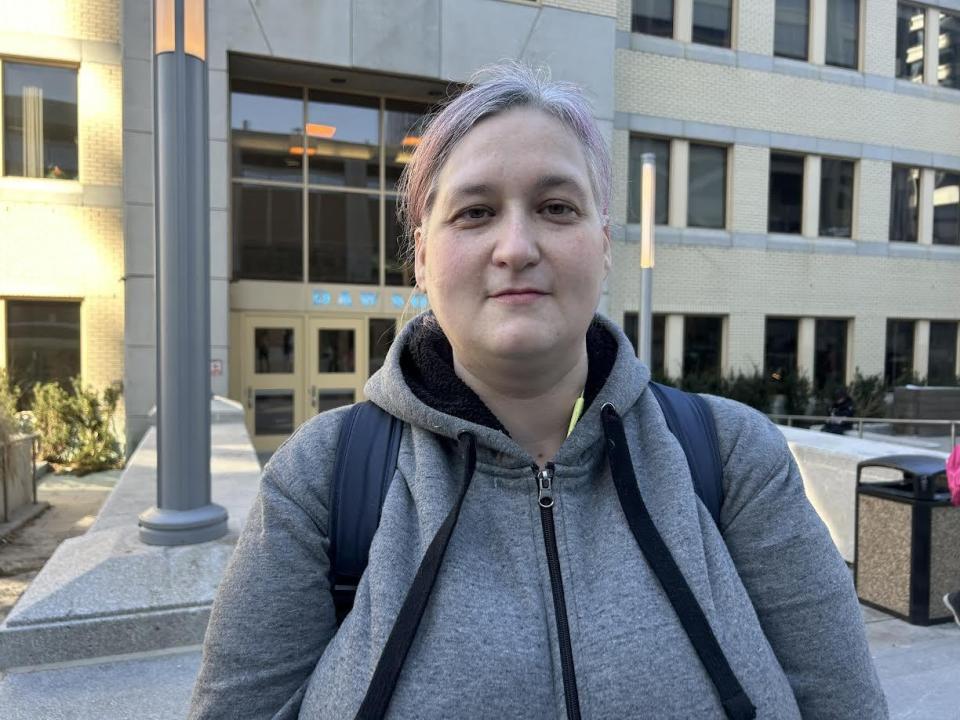Montreal's English CEGEPs are about to lose lion's share of foreign-language students and teachers to Bill 96

Montreal's English CEGEPs are on the cusp of downsizing their language departments and significantly cutting back on instruction to thousands of students per year to comply with Quebec's language reform law, known as Bill 96.
Christina Chough has been teaching Spanish at Dawson College for over two decades, but under the new law, fewer students in her classroom will be able to learn languages from other parts of the world.
That's because Bill 96 forces students attending Quebec's English CEGEPs to take five courses in French, leaving little room for complementary courses that cannot be taught in French — especially foreign-language classes.
Clough, who also chairs the CEGEPs modern languages department, is now expecting major cuts as the school is forced to hire more instructors to teach courses in French to comply with the law.
The school offers classes on Hebrew, Greek, German, Mandarin, Spanish and Italian but because of Bill 96, the school will be forced to stop teaching three of those languages and possibly lose some of its tenured teachers.
The number of students who will be able to take those classes will be sharply reduced.
The languages department is staffed to teach about 2,000 language students per academic year, but Clough says she was told at a meeting last week that 85 per cent of those complementary language spots will be lost.
Next year, Clough says there will be no more spots at all for complementary language classes at Dawson, a repercussion of a decision by the Quebec government that she says put politics above pedagogy.
"I'm expecting to lose 80 per cent of my colleagues. There are 14 people, seven of whom will definitely lose their jobs because they have no tenure," said Clough, who is also concerned she may lose her own job down the line.
"It makes me feel extremely stressed because I'm in a precarious position," she said. "I don't know if my department will close."
The Higher Education Ministry says it is working with CEGEPs to ensure a smooth transition to the new system. It also points out that the mandatory French classes can be taken in addition to a standard course load, if students want to use their complementary classes to learn another language.

Clough, right, says Dawson College will have to stop giving courses in three of the languages it currently offers. (CBC)
From expanding to downsizing
John Abbott College Spanish teacher Julie Gagnon-Riopel says her CEGEP, which teaches Mandarin, German, Italian and Spanish to about 1,000 students per academic year, was actually planning to add Arabic and American sign language — the course outlines already written and approved. But instead of expanding as planned, she says it is being shrunk by the Quebec government.
Although the situation isn't fully clear yet, Gagnon-Riopel estimates that 60 to 70 per cent of the department may disappear, going from six instructors to two, and those remaining teachers might not be able to teach languages they were hired to teach.
The language department is feeling the biggest squeeze of all, she says. Since it's not possible to teach foreign-language classes in French, the courses don't help students meet their obligations under the new law.
Usually, she says the issue is that too many students want to sign up for language courses. Now, the school is trying to plan ahead with major cuts on the horizon.
"The administration has tried their best to implement this law that makes no sense pedagogically, but they're doing their best to implement it," said Gagnon-Riopel, co-chair of the department of languages, literature and culture at John Abbott College.
Aside from gaining transferable skills and cultural enrichment, language courses offer a gateway to global communication and the global economy, says Gagnon-Riopel.

Dawson student Lidia Di Prima is studying Greek and Italian in order to help seniors and people with disabilities who need medical assistance. (Kwabena Oduro/CBC)
"I feel we're robbing students of this opportunity," she said.
For its part, Vanier College offers courses in classical Arabic, Mandarin, Japanese, Italian, Spanish and Ukrainian to around 1,100 students per academic year, according to Helen Filippou, the co-ordinator of the CEGEP's languages and cultures department.
Filippou, who teaches Spanish, is also bracing for cuts, but she can't yet put a figure on how big they will be. However, one thing she is sure of is that both students and educators will lose out.
"Students' choices are being taken away from them. You have students who take complementary courses and that changes their lives — that changes their careers entirely. It broadens their horizons. There's no broadening of horizons at this point," she said.
The uncertainty of what's to come, Filippou says, is also causing anxiety among teaching staff who are trying to figure out if they will still be able to do the jobs they love and have been trained to do.

Dawson student Amelia Fong says the cuts are a ‘big devastation.’ (Kwabena Oduro/CBC)
Lost opportunities, skills
Second-year student Lidia Di Prima is studying Greek and Italian at Dawson College. She says learning these languages equips her to do her job of communicating with seniors and people with disabilities in medical emergencies. Interpreters, Di Prima says, aren't always on hand, and even a basic understanding of a language goes a long way in assisting people in need.
Amelia Fong is in her final semester. She grew up speaking Cantonese at home, then learned English and French. At Dawson, she has taken German and Spanish classes.
For Fong, the prospect of students losing access to these classes is a "big devastation," one that limits the ability of students to interact with others around the world and benefit from those cultural exchanges.

